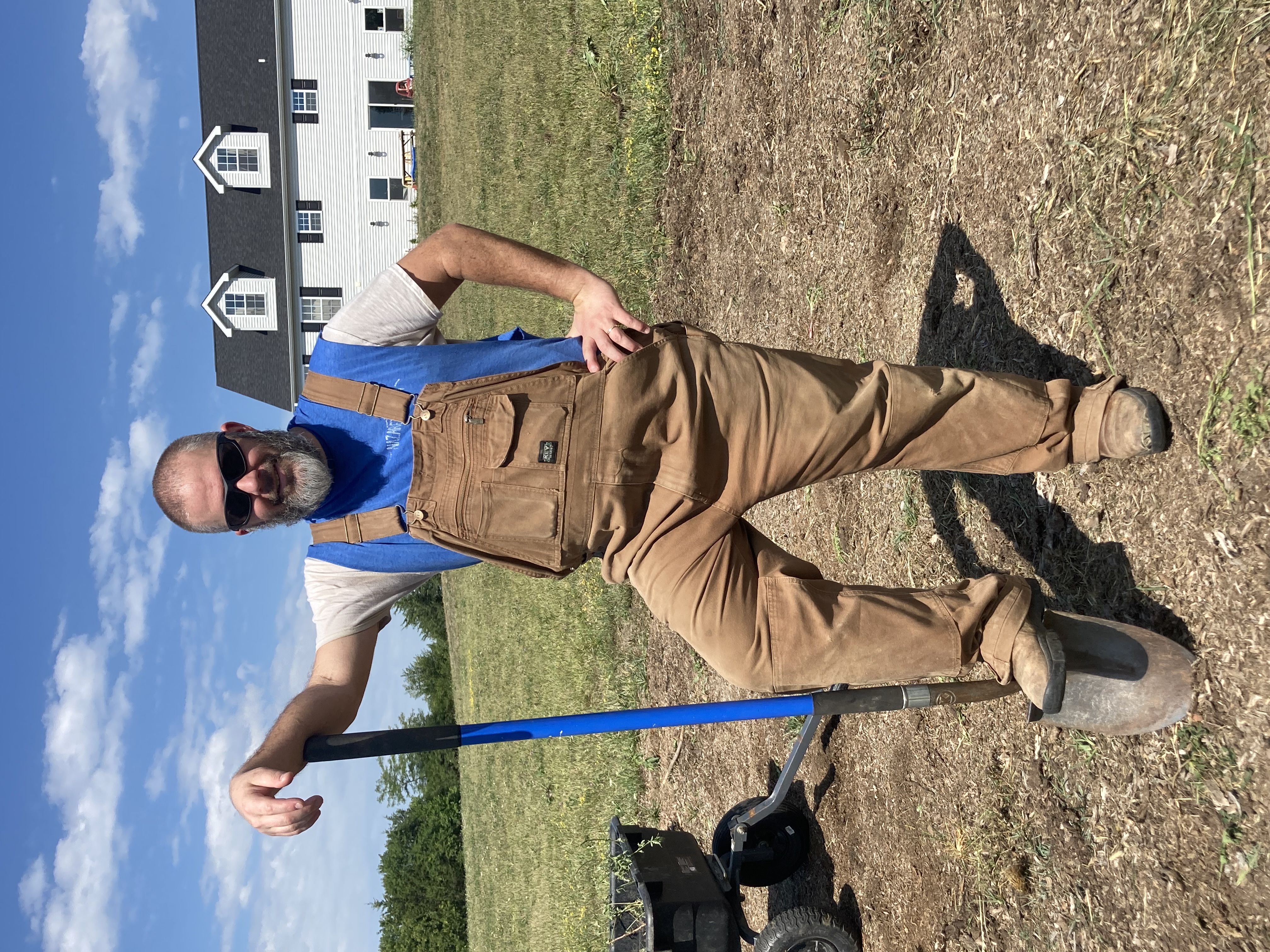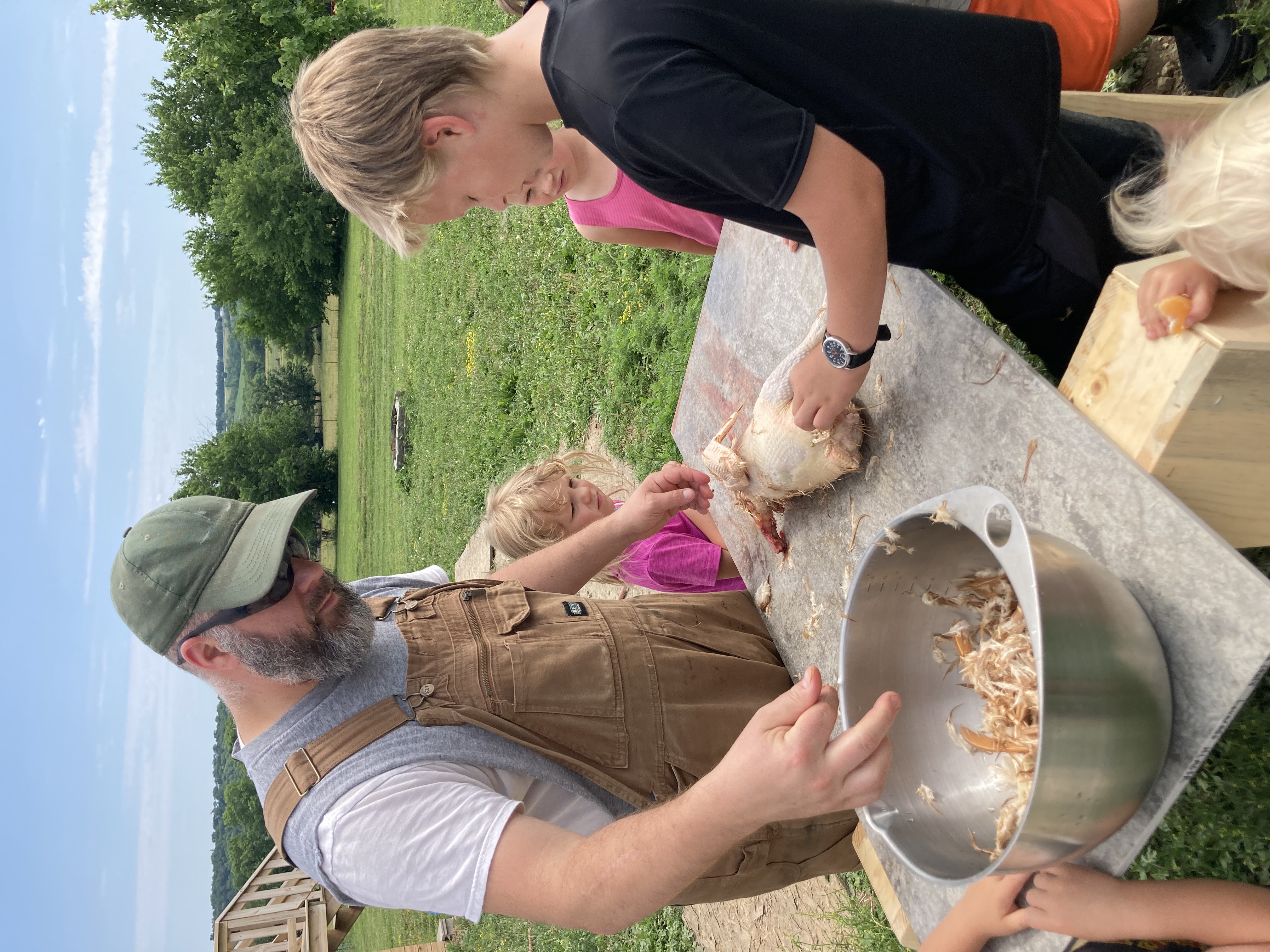As a junior in college, Bryan Gonzalez ’03 didn't know what he wanted to do with his life. The religion major and German minor from Fishers, Indiana, received a $1,000 Dill Grant in 2002. His curiosity and the generosity of a professor landed him in Europe for a summer of exploration.

“(Emeritus) Professor of Classics John Fischer had invited me to visit him overseas so I hung out with him for a couple of weeks,” says Gonzalez. “I went to Italy, because when you think about religion, you think of Christianity and Rome. For a few weeks, I lived in a monastery at the birthplace of St. Benedict in a small Umbrian town called Norcia.
Then an introduction to a host family led him to Germany.
“There I got an unpaid internship at the Topography of Terror, which was the headquarters of the Nazis,” he says. “For a month, I passed out headphones to people in different languages, and they would take self-guided tours. That was my summer.”
When he returned to campus for his senior year, Gonzalez applied for a Fulbright to teach English in Germany. He was not selected but still wanted to return to Europe. Something drew him back to Italy and the monastery in Norcia.
“The monastery would hire young men out of college to manage some of the secular affairs like run the gift shop,” he says. “They paid 500 euro a month, plus room and board. I signed up for a year and enjoyed it so much I stayed for two.
“It was great formative experience for me. I realized I didn't know my faith very well,” he says. “And, I was a religion major at Wabash—having studied scripture and lots of religious texts—but I felt this desire to learn more about my faith.”
That “spiritual awakening” led him to enroll in a five-year extended master’s degree program in Austria specializing in philosophy and theology. There he met Kilty, a young woman from Iowa who was studying abroad.
“Why fall in love with somebody who's going to be gone after three months?” he says with a laugh. “Well, that happened. In the third year of my program, I ended up studying abroad in the United States. It's all relative, right? I went there for a year, we got engaged, and she graduated all within a three-day period.”
They married in 2009. In 2010, he graduated, they had their first child, and moved to Iowa near Kilty’s family.
The monastery he worked for in Italy was looking to start a fundraising program and asked if he would be interested in the position.
“I was working remote before it was cool—seven time zones away.”
After six years of working odd times of the day and night, he moved to his current position in development for a free healthcare clinic in Des Moines.
IN 2020, WITH SIX KIDS and number seven on the way, Gonzalez and his wife, decided it was time to leave their .19 acres in the city for a place with more space.
“It was becoming apparent we needed more space in the backyard. The kids need to run around,” he says. “We always had to ask them to play baseball toward the house to spare the neighbors of broken windows but we replaced eight windows in our house in seven years.”
They built a house on eight acres in rural Iowa, 20 minutes outside of Des Moines and created a home.
“Home certainly means like the place you lay your head at night and the place that you eat your meals. We eat three meals a day here. We do our schoolwork here,” he says while sitting at the kitchen table. “This area is important for us.
“But home is also the people you love. It’s your spouse and the people she has birthed into this world,” Gonzalez says. “I think of home in those two senses. In both of those senses, I just love being here with them.”
Kilty agrees home is where you are at peace and all together.
“It’s where you're able to do what you love,” she says. “People get so caught up in achieving things and doing things. At the end of the day, it's all meaningless if you don't someone to love.”
The family has made quick use of their space for learning, loving, growing, and sustaining. The 40’x40’ garden, 43 chickens, and raw milk from an Amish family nearby feed their bodies and give them a greater appreciation for the process of gathering and preparing food.
“Moving to the country has allowed us to drive by farmers harvesting corn in the fall and realize there is a sense of gratitude for seeing how things are made,” says Gonzalez. “We do a lot more of our own cooking, the kids are great cooks now. When the winter comes, there's a lot of bread baking. When you get a fresh baked loaf of bread you want to gobble it up because it's good, but you don't want to just gobble it up. You just spent three hours making it. Then you spread butter churned this morning and jam that you had harvested from the summer.”
Being in the country has given the kids a new-found freedom and has widened their classroom.

“We homeschool— so when we're talking about science, we have a lot of science in our backyard,” he says. “I have learned so much about the moon, for example, just living out here because you can see it and the stars. It is just gorgeous. The sky is just beautiful out in the country.”
“The end of every day, we’re exhausted,” Kilty says. “Then I look at the pictures that I took or one of the kids took on my phone throughout the day, and I think, that was a good day.”
THE COUNTRYSIDE WHERE HE LIVES in Iowa now looks different from the many countries he discovered as a Wabash student and young alum, but even then, he knew he wanted something more than traveling the world by himself.
“Wabash afforded me the opportunity to do some extraordinary things. I never thought I would be a world traveler,” he says. “I distinctly remember thinking, this is lovely to do, but I would much rather be sharing this with someone I love—a spouse.
“I'd rather be here at home with my family than any of the exotic places that I've been.”